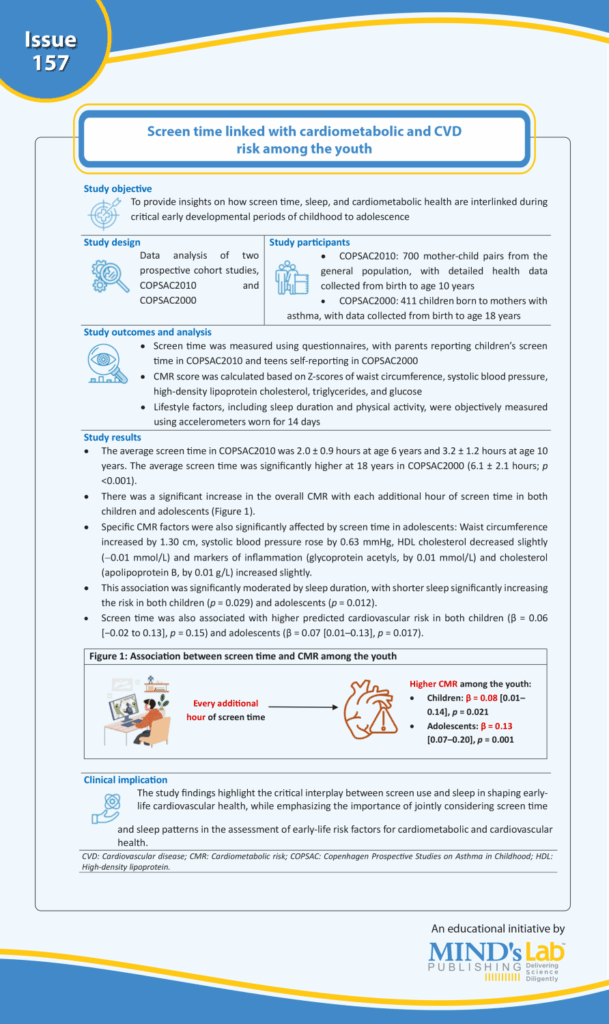
Cardiovascular disease (CVD) is a leading cause of morbidity and mortality globally, and has its origin in childhood. Presence of cardiometabolic risk (CMR) factors like insulin resistance, high blood pressure, increased cholesterol levels, high waist circumference, and obesity are important predictors of early onset of CVD.
In recent times, with children and adolescents involved in more and more screen time through engagement in digital content for educational, recreational, or social purposes, there will be an increase in CMR factors. The potential health implications of this trend have been investigated in several studies, with associations between screen time and CMR factors being noted among the youth. However, this relationship is complex and possibly multifactorial. Moreover, it is often difficult to untangle the effects of screen time from other lifestyle factors like reduced physical activity and sleep duration, increased sedentary time, and unhealthy diet. Previous research on this relationship lacks objective measures for contextual lifestyle factors, relying only on subjective self-reported measures of diet, sleep, and physical activity. Thus, it may be biased and have inaccuracies.
A recent study by Horner D et al., published in the “Journal of the American Heart Association”, provided a complete picture of the connection between screen time, sleep, and cardiometabolic health during critical early development periods. This study used two groups of mother–child cohorts from the Copenhagen Prospective Studies on Asthma in Childhood to explore the relationship between screen time and health. Screen time, reported by parents or self, was investigated related to a composite CMR score based on Z-scores of waist circumference, systolic blood pressure, high-density lipoprotein cholesterol, triglycerides, and glucose. Lifestyle factors were objectively measured using accelerometers worn for 14 days. Increased daily screen time was found to be linked to higher CMR among children and adolescents. However, longer sleep duration could help to weaken this association, with adequate sleep linked to a reduced impact of screen time on cardiometabolic and cardiovascular health of children and adolescents (see Graphic).

(Source: Horner D, Jahn M, Bønnelykke K, Chawes B, Flensborg-Madsen T, Schoos AM, Stokholm J, Rasmussen MA. Screen time is associated with cardiometabolic and cardiovascular disease risk in childhood and adolescence. J Am Heart Assoc. 2025;14(16):e041486. DOI: 10.1161/JAHA.125.041486)
